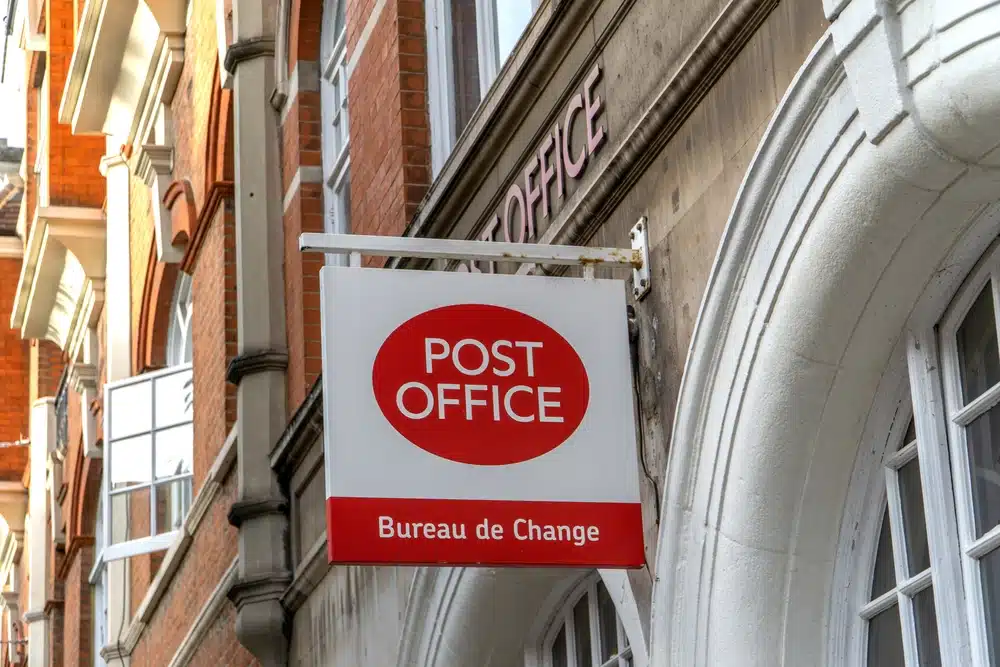
Despite this fact, recent research shows that post offices across the UK remain key to their local communities, providing no-frills access to basic banking services and an invaluable lifeline for those who are unable to use traditional methods of financial services.
This trend is likely to remain in place as long as people need physical identification documents and postal services such as sending parcels which cannot be replicated online.
Post office market trends in 2023
The number of post offices in the UK has declined over the past decade. As rural communities have changed and many local residents travel to nearby towns to work and shop, many post offices have found it difficult to survive, along with other types of retail outlets.
There has also been a decline in the demand for Post Office services due to:
- In order to phase out the use of order books and cheques, benefits and allowances are being paid directly into customers’ bank accounts. Instead of receiving their benefits through the Post Office, many people prefer to have them paid directly into their bank accounts
- Payment options include online, by cheque or direct debit, or at a PayPoint location
- More people use email instead of writing letters as stamps become available from other retail outlets
- A competitive market for postal services is opening up
- Loss of TV licensing contract by the Post Office
- Online delivery of traditional Post Office services, such as vehicle licensing
- The Royal Mail is losing parcel business to competitors and click-and-collect services
Post Offices compensated by offering new services, including bureau de change, travel insurance, financial services, lottery tickets, scratch cards, etc. As a result, almost every UK bank account can now be accessed by customers. Electronic transactions are now possible throughout the entire Post Office network.
In 2007, the government began a program of planned closures of post offices to preserve the national network of post offices. 2,500 post offices were closed as part of the Network Change program, while 500 new ‘outreach’ offices were opened simultaneously. For the network to survive into the future, new work needed to be assigned to post offices.
It was confirmed at the end of 2008 that the Post Office card account would continue. Payments for setting up accounts and handling transactions fell in 2010 despite Post Office Ltd winning the contract.
In order to sustain businesses, the National Federation of Subpostmasters (NFSP) urged the government to create more work for the network. A new funding of £1.34 billion was included in the Postal Services Bill, which received Royal Assent in June 2011.
A new post office model was created under the Post Office Transformation programme to make it easier for post offices to be open longer hours and on Sundays, as well as to conduct post office business and retail activities together. There are two types of post offices in the new style, Main Post Offices and Local Post Offices. Post offices in communities where there is only one outlet have also been retained under the old model.
Nowadays, most Local Post Offices are run from retail businesses, such as newsagents or convenience stores. According to the Association of Convenience Stores, more support is needed because an increasing number of convenience stores are losing money
Post offices do not provide enough government services despite the changes, according to the NFSP. NFSP members are pleased that the government renewed the Post Office card account when it expired in March 2015, but they are concerned that government services through the Post Office are declining. Until 2022, the new contract will be in effect.
You should think about the following before you buy a post office:
- Retailing activities will be able to compete with those of other local businesses
- Your proposed operating area will have sufficient demand for post office services, resulting in high Post Office transaction fees
- You’re prepared to put in the long hours required to ensure your venture succeeds
As a result of a government consultation, the ‘three mile’ rule provides rural communities with an appropriate and convenient level of access to the post office network. Over the next three years, the government will invest £210m to modernise 11,600 branches (of which 6,185 are rural) and invest £160m to prevent rural post offices from closing.
Keeping up to date with the Post Office sector
Keep up to date by joining a trade association. Sub-postmasters in the UK are represented by the National Federation of Sub-Postmasters. Those considering purchasing a post office can find helpful information in the Federation’s fact sheet, and its monthly journal The Subpostmaster is filled with articles and features of interest. Several useful resources are available on the Federation’s website.
You can contact the Federation at Evelyn House, 22 Windlesham Gardens, Shoreham-by-Sea, West Sussex BN43 5AZ.
Online applications for advertised post offices are available on Post Office Ltd’s main website for prospective subpostmasters. As well as providing information to sub-postmasters on a dedicated website, One Post Office, the Post Office also provides information about becoming a subpostmaster on Run a Post Office.
Conclusion
The post office sector in the UK is filled with high potential and opportunity. There is a wide array of services offered at post offices across the nation, ranging from parcel delivery, to banking services and international money transfers. Sophisticated communication technologies and strategies are driving consumer demand for faster, more secure solutions and this has given way to substantial changes within the industry that can be seen in branches up and down the country. The post office sector in the UK is undeniably an attractive market for both customers and investors, who are finding new opportunities to capitalise on.
Read more: Legal issues that Post Offices face
Lee Jones is a seasoned Business Finance Specialist with over two decades of invaluable experience in the financial sector. With a keen eye for market trends and a passion for helping businesses thrive, Lee has become a trusted advisor to countless organizations seeking to navigate the complexities of finance.


